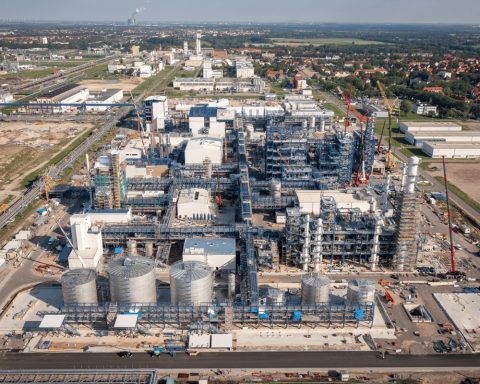
Case Study
Mammoet helps transport and construction at UPM’s biorefinery in Leuna
Photo Mammoet/UPM Biochemicals
Engineered heavy lift and transport major, Mammoet, has played a major role in the construction of UPM Biochemicals’ biorefinery in Leuna, Germany. It is UPM’s first biorefinery to produce wood-based biochemicals, making a step ahead towards a sustainable future, where recyclable products will be made from biochemicals, replacing fossil chemicals.
Want to read more?
You have read all of your free premium articles for this month. Please become a subscriber to keep reading.
Subscribe now!
Take advantage of our exclusive offer to get full access to all premium content.




